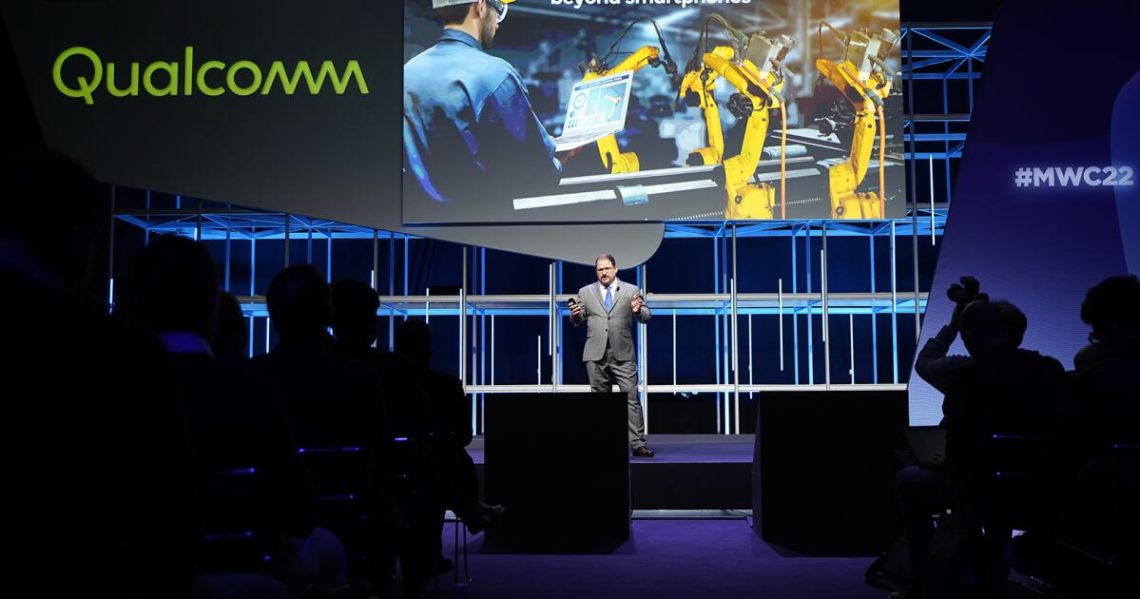Qualcomm on Monday announced the release of a new series of artificial intelligence chips to compete with the market leader Nvidia, as the race to cash in on the massive AI datacenter buildout heats up.
If successful, Qualcomm, a San Diego-based tech giant, could win a spot in the data centers powering AI as customers look for alternatives to Nvidia, which controls close to 90% of the AI chip market.
The Qualcomm AI200 is scheduled to be the first chip in the series that will be commercially available in 2026, which will be followed by the AI250 chip in 2027. The company’s stock surged 20% after news of entering the data center market.
It plans to sell its purpose-built AI server racks containing dozens of AI chips that can be installed in data centers, and will also sell just the standalone AI chips which enterprises can buy and plug into their existing servers.
“Our rich software stack and open ecosystem support make it easier than ever for developers and enterprises to integrate, manage, and scale already trained AI models on our optimized AI inference solutions,” said Durga Malladi, a senior vice president at Qualcomm.
Qualcomm is best-known for its chips used to power smartphones. It is one of the latest entrant into the AI chipmaking arena, joining Intel and AMD, to compete with Nvidia. Qualcomm is positioning itself as an energy efficient chip that will cost much less to run in the long term.
These companies see an opportunity in building inference chips, which are used when a trained AI model runs real-time computations to generate outputs such as answer questions or generating images.
Demand for such AI inference chips has increased with wider adoption and newer use cases, with companies such as Amazon, Google, and Microsoft creating their own AI chips.
Nearly $7 trillion of capital expenditure will be spent on datacenters through 2030, according to a Mckinsey estimate.
“It makes sense that Qualcomm wants to diversify beyond smartphones and get into this game,” says Austin Lyons, analyst and founder of Chipstrat, a semiconductor publication. “This is a good and different vector — not just consumer products, but datacenter.”
OpenAI, in September, signed a $10-billion deal with Broadcom to design custom AI chips, and has invested in AMD with a commitment to buy its MI450 AI chips.
Qualcomm also signed Saudi Arabia’s Humain, an AI company backed by the country’s sovereign wealth fund, as its first customer for the new series of chips. The chips will be deployed in datacenters of Humain in 2026.
Humain plans to launch a $10-billion venture fund, and in May, picked another California chipmaker, Groq, to supply inference chips for its datacenters.
Abu Dhabi-backed G42, an AI development holding company — that holds a stake in U.S. chipmaker Cerebras Systems — will build the 5 gigawat UAE-US AI campus that was announced during President Trump’s visit in May.
Gulf countries have emerged as a power player in AI, as Trump’s White House overhauled Biden-era chip export restrictions and brokered multibillion dollar deals for the U.S. to supply advanced chips required to fuel its AI ambitions.
The post Qualcomm to take on Nvidia with its own AI chips appeared first on Los Angeles Times.




